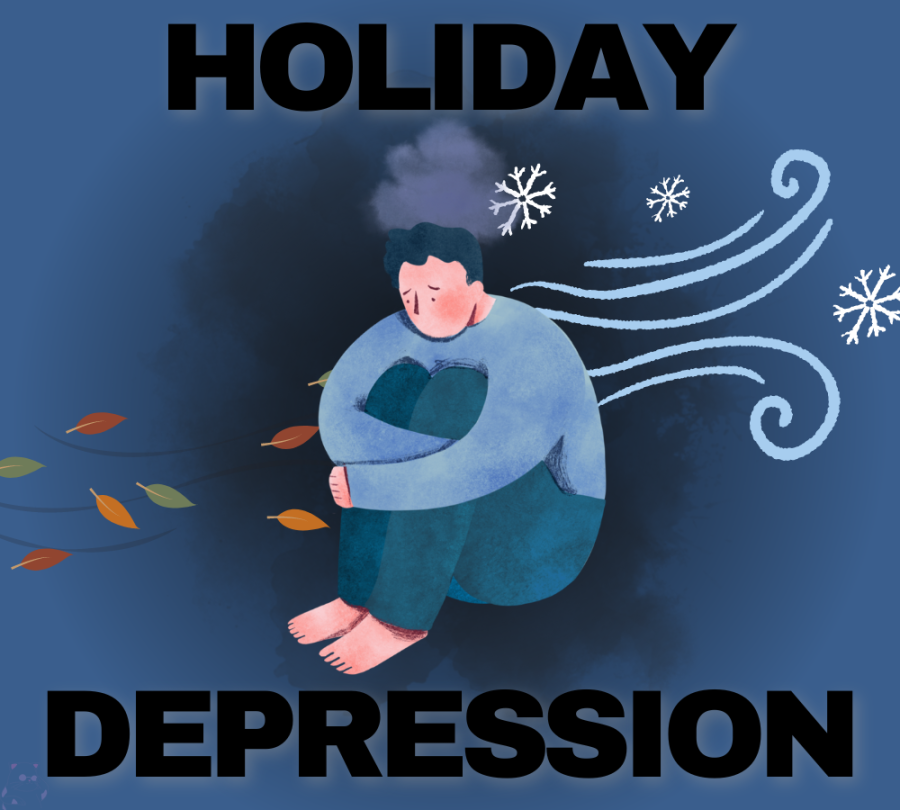Holidays and seclusion during autumn and winter can bring back unwanted memories and poor emotional stability, taking a larger toll on people with mental health issues. Even if you live with family or friends, long periods of seclusion can cause anyone’s depression to spike, and the added stress of the holidays does not help with these issues.
Teens who suffer from mental health issues have a harder time coping with their emotions during the winter and autumn seasons. The short days and cold nights can cause adult and teen depression to spike, so developing healthy ways to cope with negative emotions in advance before the holidays.
“We need to be proactive in order to take care of ourselves,” School Counselor, Gina Law said. “If you’re healthier overall, when something stressful happens to you, you are better able to handle it.” “That’s probably the number one thing: take care of yourself.”
Part of taking care of yourself is acknowledging your emotions, positive or negative, and assessing how to deal with those emotions in the correct way. Learn how to set boundaries with your loved ones, so the holidays will become less stressful.
“It helps to know the plan. Have some set things in place that you can maybe escape that situation, even just for a little bit of time to breathe, to gather yourself,” Law said. “Say, ‘Hey. This is what I think I can handle during that time.’”
Throughout the holiday seasons, unfamiliar faces and old memories surround everyone which can cause exacerbated mental health symptoms. It helps to take a few minutes to yourself now and again, and make sure not to push yourself past your limits. Reflect on positive events, present or past, to help yourself work through tough times. Take time to check in with yourself, and have realistic expectations about the holidays.
“Recognize that you don’t need to force yourself to be happy and that it’s good to acknowledge feelings that aren’t joyful,” an article by McLean Harvard Medical School Affiliate said. “Memories, stressful patterns that seem to occur every holiday, or potential new crises are common triggers.”
Recurring trauma, unpleasant memories, or family members can cause stress, but colder climates do not help with the flow of negative emotions. Being stuck inside can cause loneliness and isolation, and this can cause some people’s mental health to worsen. These symptoms are all normal for teens and adults alike, so making a schedule can help keep balance in someone’s life during the holidays.
“The shift towards colder winter months, longer nights, and less overall sunlight seem to play a role in [a teen’s] low mood,” an article from Visions Teen said. “A healthier, balanced approach to the holiday season can help reduce… stressors, and potentially dial down how much the holidays can exacerbate a person’s symptoms. To help, consider creating a careful and tailored approach with [a] therapist.”


